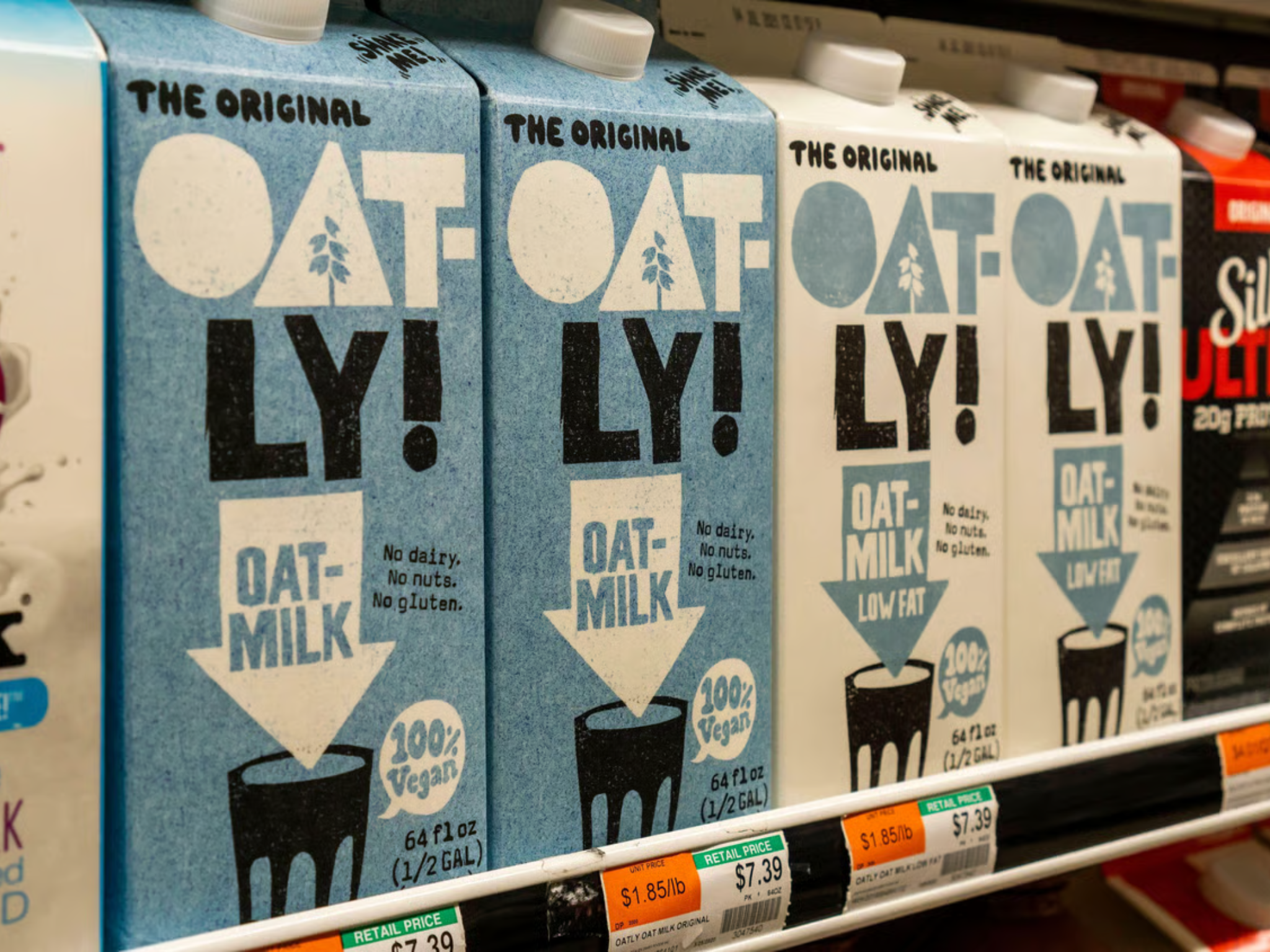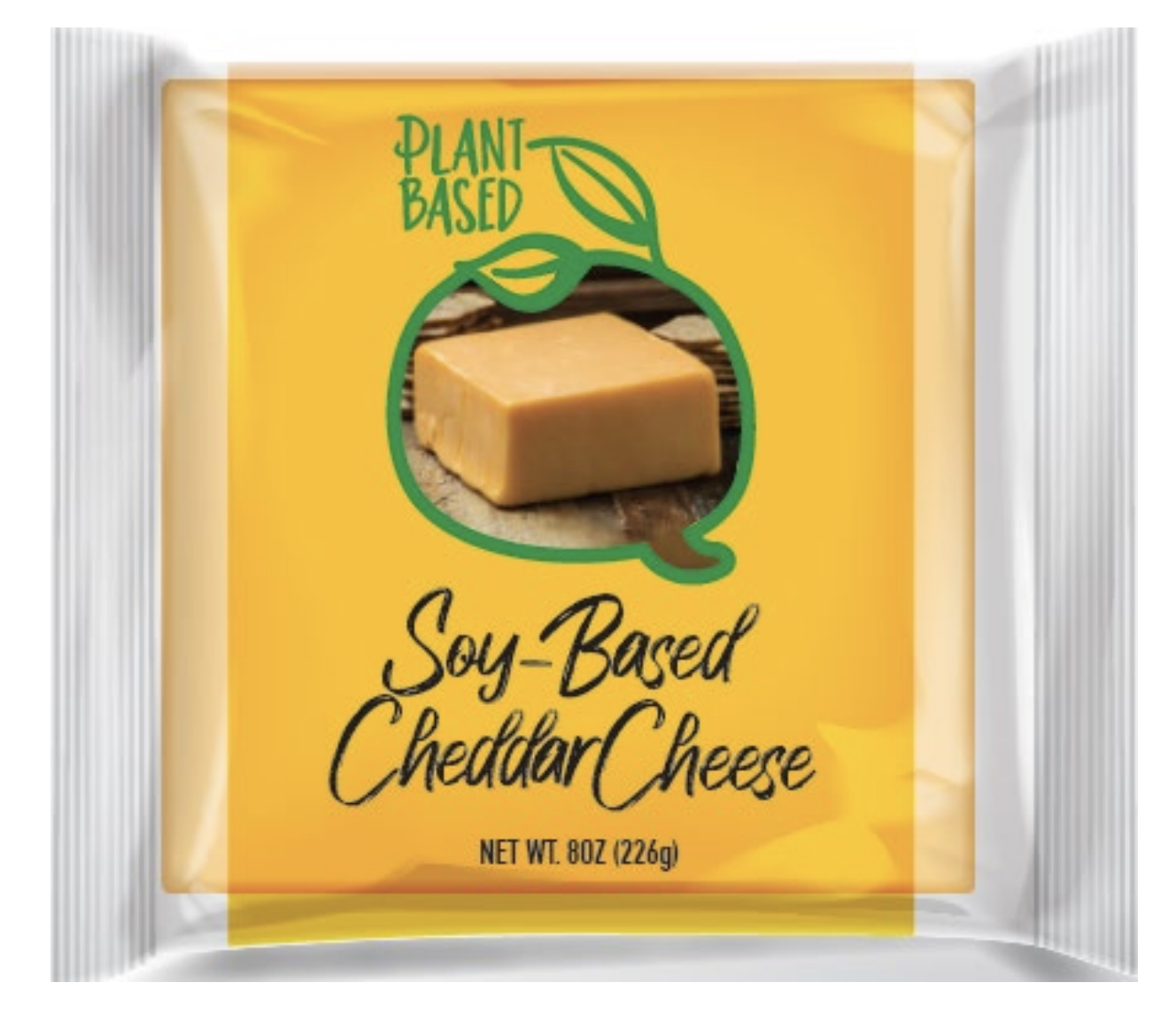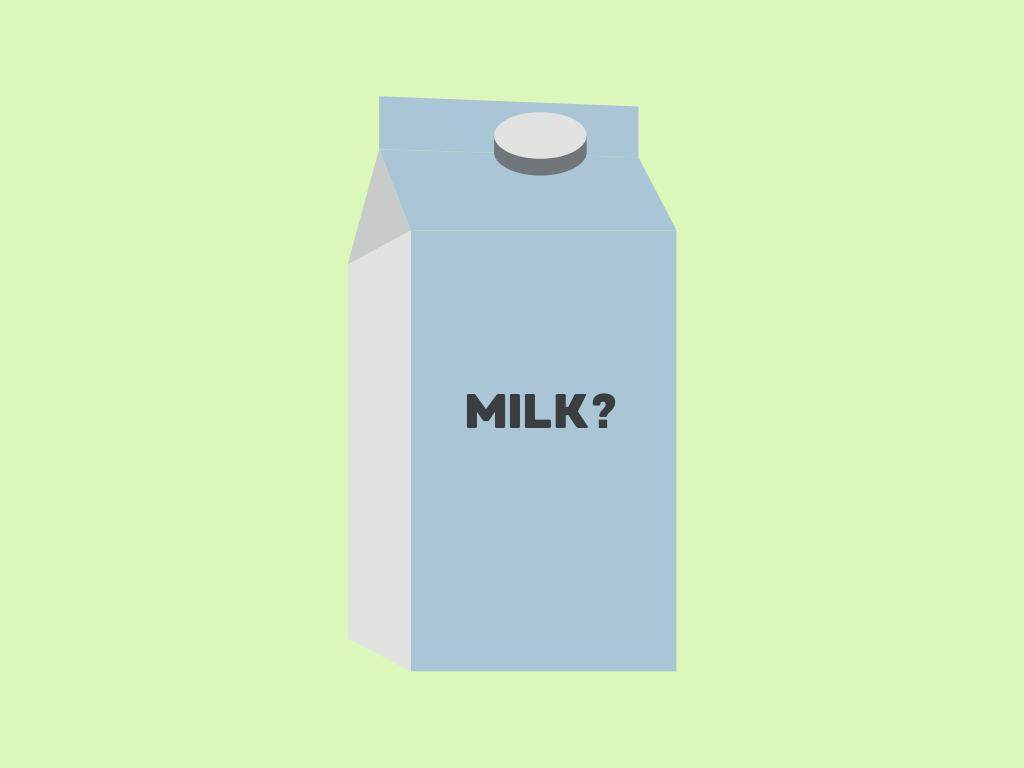
Backed by the milk industry, a bipartisan group of US senators has reintroduced the Dairy Pride Act, asking the FDA to crack down on “misleading” plant-based labels.
As Democrats and Republicans join forces to make plant-based milk available in school lunches for children with dietary restrictions, another bipartisan bill aims to crack down on how these products are labelled.
Four senators have revived the Defending Against Imitations and Replacements of Yogurt, milk, and cheese to Promote Regular Intake of Dairy Everyday (Dairy Pride) Act. They’re asking the US Food and Drug Administration (FDA) to ban the use of ‘milk’, ‘cheese’, ‘yoghurt’ and other such terms on non-dairy alternatives.
Currently, the FDA’s guidance allows plant-based milk brands to use ‘milk’ on their product labels. As for vegan dairy products, it recommends placing an emphasis on the plant-based sources that form their base. For example, instead of ‘plant-based’ or ‘dairy-free’, the FDA’s guidelines (which are not legally enforceable) suggest descriptions like ‘soy-based Cheddar cheese’.

Do plant-based milk labels hurt farmers and confuse consumers?
The bill is a replica of the Dairy Pride Act of 2023-24, which was brought forward by Senators Peter Welch, Tammy Baldwin (both Democrats), Jim Risch and Susan Collins (both Republicans). This is the same group that has introduced the latest bill.
They argue that food labels shouldn’t be allowed to use dairy-related terms if they don’t meet the Federal Food, Drug, and Cosmetic Act’s definition of dairy products, which includes only those derived from the “lacteal secretion, practically free from colostrum, obtained by the complete milking of one or more hooved mammals”.
“For far too long, imitation dairy products made from plants and nuts have ridden the coattails of our dairy farmers and gotten away with using dairy’s good name without meeting those standards,” said Baldwin.
If the bill is voted into law, it would give the FDA 90 days to come up with draft guidance to enforce the change for plant-based dairy labels, and 180 days to issue final guidance. Further, the agency would need to report to Congress two years after enactment to hold itself accountable for the enforcement of the law.

While the senators argue that these products hurt farmers and cause consumer confusion, they’re far from unbiased. The bill is backed by a range of dairy and livestock associations, including the National Milk Producers Federation, American Farm Bureau Federation, Midwest Dairy Coalition, and FarmFirst Dairy Cooperative, among others.
John Umhoefer, executive director of the Wisconsin Cheese Makers Association, argued: “The FDA’s disappointing draft guidance, allowing imitation products to co-opt dairy’s reputation for their own sales benefit, will result in more consumer confusion.”
However, research has shown that the nutritional value of plant-based milks in the US is, on average, almost on par with their conventional counterparts.
As for the consumer angle, a study from 2018 found that three-quarters of Americans were not confused about the nature of non-dairy milks and the fact that they don’t contain cow’s milk. That was seven years ago, and milk alternatives have grown in popularity since then. Two in five households purchased these products last year, and 76% went back for more.
The paradox facing plant-based milk in US legislation
For the senators behind the move, these labels still need a rethink. “This bill will give our farmers much-needed support and correct the FDA’s misguided efforts to allow non-dairy products to use dairy names, giving dairy farmers the protections they need to thrive,” said Welch.
In addition, he has introduced the Whole Milk for Healthy Kids Act, which seeks to overturn an Obama-era reform that prohibited full-fat and 2% milk from being part of the school lunch programme and has support across the aisle.
One of its co-sponsors is Pennsylvania Senator John Fetterman, who simultaneously introduced the aforementioned Freedom in School Cafeterias and Lunches (FISCAL) Act to bring non-dairy milk to school lunches.

The FISCAL Act is a companion measure of the Whole Milk for Healthy Kids Act, and Fetterman is also a co-sponsor of this Dairy Pride bill. It highlights the paradox around non-dairy milks in the US: the same people who want children to have access to plant-based milk want to put restrictions on the companies that produce it.
The Dairy Pride Act comes just weeks after the American Butter Institute filed a complaint to the US Food and Drug Administration against vegan butter maker Country Crock’s use of the phrase ‘Dairy-Free Salted/Unsalted Butter’ on its Homestyle lineup.
And last month, politicians in the EU – where plant-based products aren’t allowed to use dairy-like terms – renewed a push to restrict the use of meaty terms on vegan alternative labels too, a sign that this effort isn’t dying down anywhere.
The post US Senators Ask FDA to Ban Dairy-Like Terms on Plant-Based Product Labels appeared first on Green Queen.
This post was originally published on Green Queen.